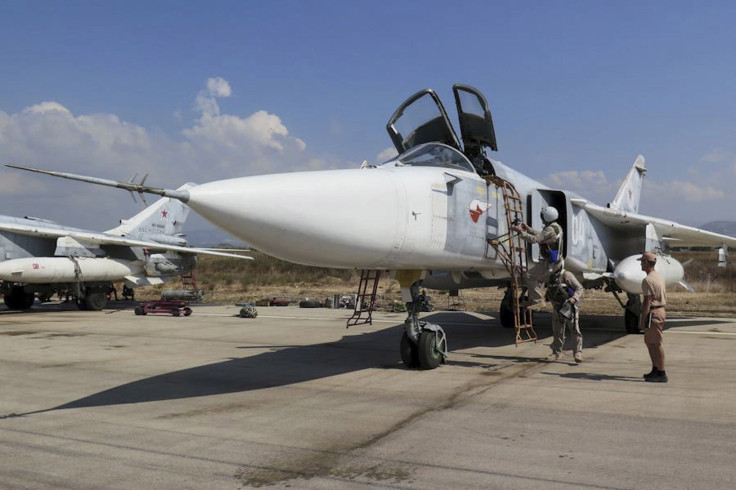Russian Su-24M Jet Attack: Moscow Says Decoding Black Box Of Downed Warplane ‘Impossible,’ Will Require Third Party Help

The flight recorder of the downed Russian Su-24M fighter jet has been damaged resulting in failure to retrieve information, the Russian defense ministry said Monday at a press conference in Moscow. The damage might prove a hurdle for Russia to find whether its warplane violated Turkish airspace -- the reason why Turkey shot down the fighter bomber on Nov. 24.
"Decoding of the data from the microchips is impossible at this point due to internal damages, and we are considering asking for help from Russia's specialized scientific institutions to read the data," said Lt. Gen. Sergei Bainetov, deputy head of the Russian ministry's flight safety department, according to China's Xinhua News Agency. Bainetov added that the decoding will take a "substantially long time."
Russia started the decoding of the black box Friday after authorities opened it in a Moscow laboratory with live broadcast to journalists. Although the Russian defense ministry had invited 14 countries to participate in the investigation of the Su-24 fighter bomber, most refused to join. The examination of the flight recorder was performed in the presence of experts from China, the United States and Britain, Xinhua reported.
The investigation commission is considering involving specialized scientific research facilities that can help extract information directly from microchip's crystals in the recorder’s memory board, Bainetov said, according to Sputnik News.
"The microchip with the serial number BDD5 may be in an operable condition, as definite damage to its internal elements has not been revealed by the x-ray picture," he added.
The downing of the Su-24M jet has soured relations between Moscow and Ankara. Russian President Vladimir Putin has called Turkey’s action as a “stab in the back.” Moscow, which insists that its plane did not violate Turkish airspace, has demanded apology from Ankara. However, Turkish Prime Minister Ahmet Davutoğlu said late November that his country would not apologize to Russia.
Last Wednesday, Russian Deputy Foreign Minister Alexei Meshkov also said that Ankara should guarantee Moscow that such an incident would not happen in future and that Turkey should pay compensation for shooting down the warplane.
Earlier this month, Alexander Grushko, Moscow’s permanent representative to NATO, said that the U.S.-led coalition “politically covered” Turkey by not giving any opinion over the incident and accused the coalition of being equally responsible.
© Copyright IBTimes 2025. All rights reserved.






















